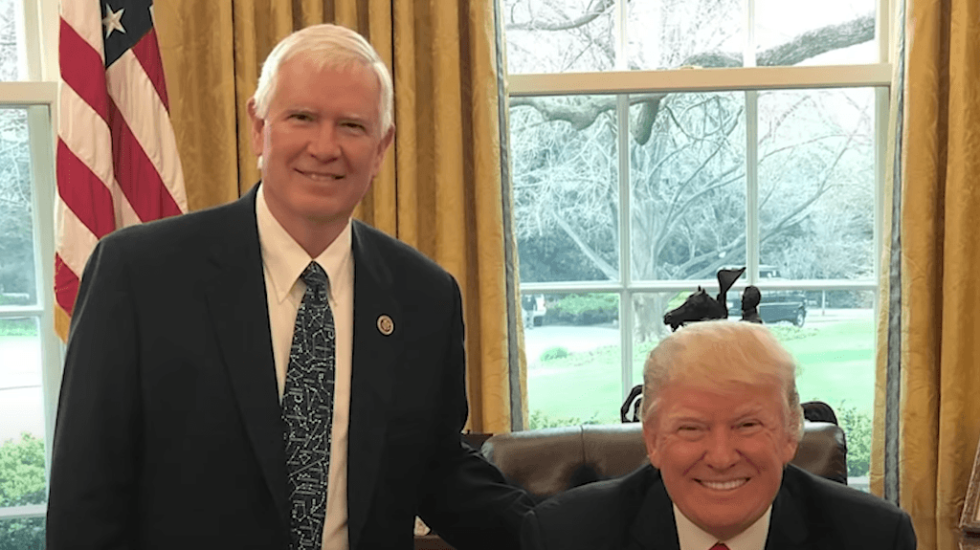It’s not our problem.
That’s the Justice Department’s message for Congressman Mo Brooks (R-AL), who wanted the DOJ to intervene in a civil lawsuit concerning his role in the January 6 riots at the U.S. Capitol.
Congressman Eric Swalwell (D-CA) filed the suit against Brooks, alleging that the Alabama lawmaker incited violence by telling a pro-Trump crowd that the 2020 election was stolen. That crowd then stormed the U.S. Capitol and injured approximately 140 police officers. Five people died during the attack and its fallout.
The Washington Post explains:
During a speech at the Jan. 6 rally, Brooks told the crowd to “start taking down names and kicking ass.” He has argued that his statements were part of his work as a representative of a district where 64 percent of voters chose Donald Trump over Biden. As a federal employee, Brooks says, he has immunity from lawsuits for actions taken within the scope of his job.
If the DOJ agreed with Brooks’ argument, he would have been dismissed from the lawsuit and the United States would have been substituted as a defendant. But the DOJ disagreed, explaining that “Inciting or conspiring to foment a violent attack on the United States Congress is not within the scope of employment of a representative — or any federal employee — and thus is not the sort of conduct for which the United States is properly substituted as a defendant under federal law.”
In a filing with the federal district court in the District of Columbia, the DOJ argued that Brook’s speech was campaign activity and therefore not subject to an elected official’s immunity:
The record indicates that Brooks’s appearance at the January 6 rally was campaign activity, and it is no part of the business of the United States to pick sides among candidates in federal elections. Members of Congress are subject to a host of restrictions that carefully distinguish between their official functions, on the one hand, and campaign functions, on the other. The conduct at issue here thus is not the kind a member of Congress holds office to perform.
Swalwell’s lawsuit also targets Donald Trump, his son Don Jr., and Rudy Giuliani. The New York Times explains:
Citing excerpts from their speeches, Mr. Swalwell accused the men of violating federal law by conspiring to prevent an elected official from holding office or from performing official duties, arguing that their speeches led Mr. Trump’s supporters to believe they were acting on orders to attack the Capitol.
Mr. Swalwell alleged that their speeches encouraged Mr. Trump’s supporters to unlawfully force members of Congress from their chambers and destroy parts of the Capitol to keep lawmakers from performing their duties.



